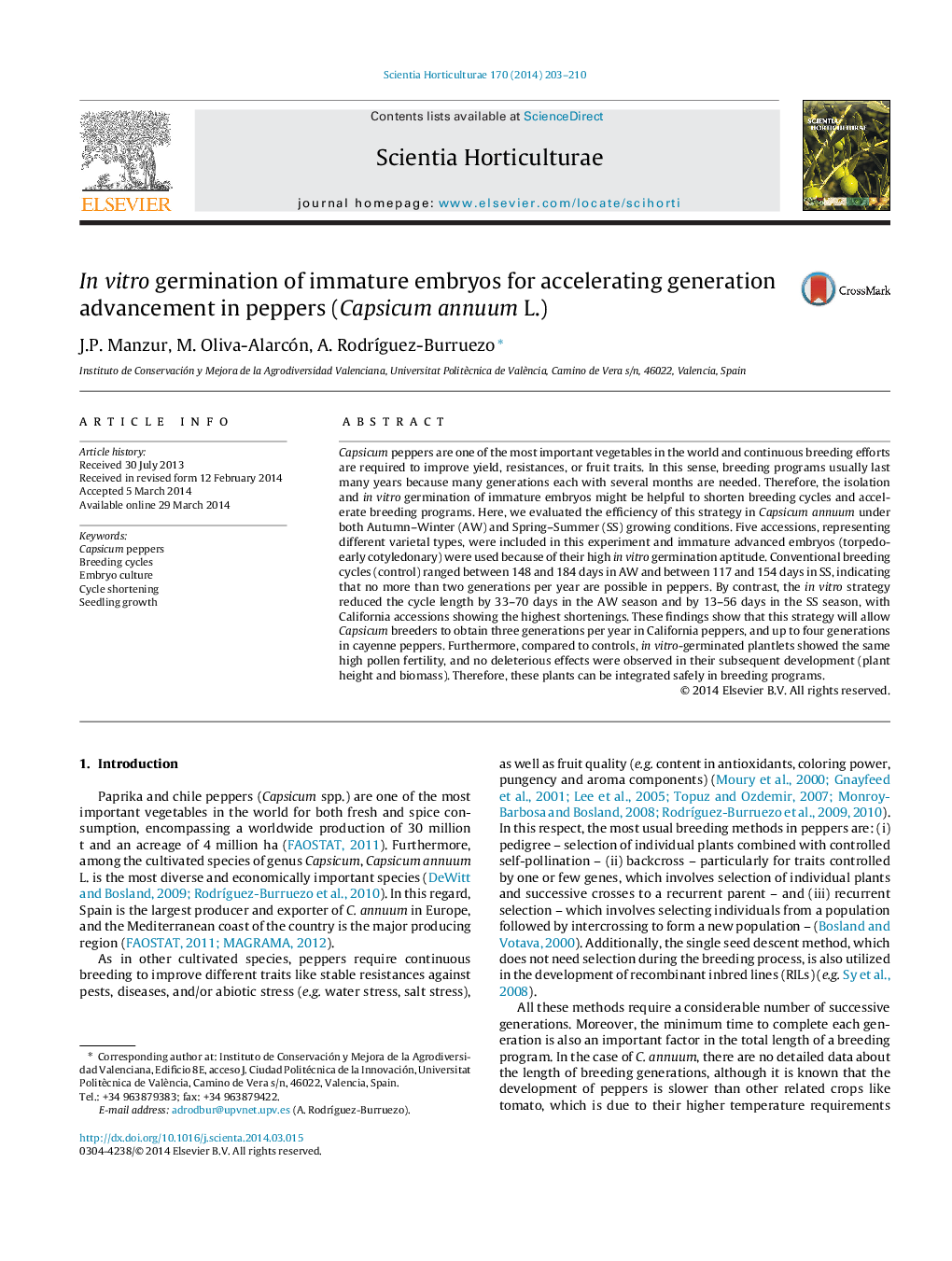| کد مقاله | کد نشریه | سال انتشار | مقاله انگلیسی | نسخه تمام متن |
|---|---|---|---|---|
| 6407214 | 1628828 | 2014 | 8 صفحه PDF | دانلود رایگان |

- The efficiency of embryo culture to shorten breeding cycles in C. annuum was studied.
- Evaluations involved several varietal types under different growing seasons.
- Embryo culture enabled shortenings of up to 70 days compared to conventional method.
- In vitro germination did not cause deleterious effects in the subsequent development.
Capsicum peppers are one of the most important vegetables in the world and continuous breeding efforts are required to improve yield, resistances, or fruit traits. In this sense, breeding programs usually last many years because many generations each with several months are needed. Therefore, the isolation and in vitro germination of immature embryos might be helpful to shorten breeding cycles and accelerate breeding programs. Here, we evaluated the efficiency of this strategy in Capsicum annuum under both Autumn-Winter (AW) and Spring-Summer (SS) growing conditions. Five accessions, representing different varietal types, were included in this experiment and immature advanced embryos (torpedo-early cotyledonary) were used because of their high in vitro germination aptitude. Conventional breeding cycles (control) ranged between 148 and 184 days in AW and between 117 and 154 days in SS, indicating that no more than two generations per year are possible in peppers. By contrast, the in vitro strategy reduced the cycle length by 33-70 days in the AW season and by 13-56 days in the SS season, with California accessions showing the highest shortenings. These findings show that this strategy will allow Capsicum breeders to obtain three generations per year in California peppers, and up to four generations in cayenne peppers. Furthermore, compared to controls, in vitro-germinated plantlets showed the same high pollen fertility, and no deleterious effects were observed in their subsequent development (plant height and biomass). Therefore, these plants can be integrated safely in breeding programs.
Journal: Scientia Horticulturae - Volume 170, 7 May 2014, Pages 203-210